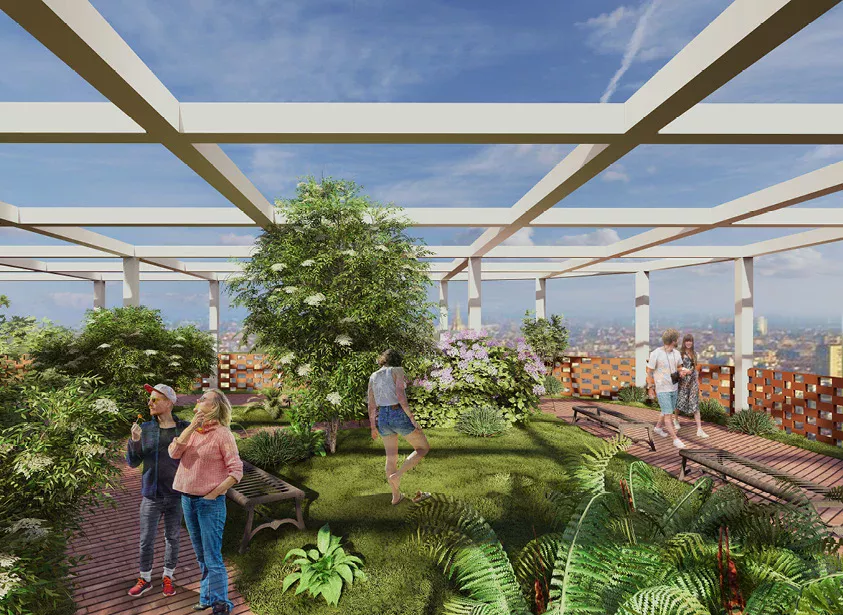Advanced Course in Design for Complexity

This Advanced Course in Design for Complexity helps understand hidden influences and structures shaping events and objects in our lives, enabling participants to create meaningful systemic changes even in the face of challenges.
Language English
CFA/ECTS 24
Duration 6 Months
Start Sept or Jan
Are you willing to deepen your design knowledge in a short time, with a high-standard programme?
Today’s complexity is not just a characteristic of certain problems but an inherent aspect of our current world. Challenges such as climate change, social inequality, existential technological risks, and overall sustainability, among others, cannot be viewed in isolation, but they are part of a bigger picture where everything affects and is affected by everything else.
The Advanced Course in Design for Complexity emerges as a critical response to this reality, offering an in-depth exploration into the intricate web of systems that define our daily lives, to learn navigating and influencing them.
The Advanced Course structure is organised in two modules. Each module includes one theoretical course and one core workshop.
After successfully completing the Advanced Course in Design for Complexity, and additionally being recognised with 24 CFA/ECTS (for accredited path), students may have the opportunity to further proceed their studies by enrolling in the Academic Master’s Programme in Service Design.
ECTS credits might be validated at the option of the chosen University of reference in case of a transfer’s request to a postgraduate programme.
Dates: 10 Sept 2024 – 24 Jan 2025 or 27 Jan – 23 May 2025
Participants of the Advanced Course are expected to have first level academic degree (Bachelor degree or academic diploma) in fields related to the selected study programme.
Students with a different degree or diploma, motivated by strong interest in the programme’s topics and professionals with a previous background in the related field of study can also apply.
Certificate of English language (IELTS 5.0 Academic or equivalent on entry) is required.
Students are prepared to embark on a career as self-employed consultants or entrepreneurs or to consider a wide range of related roles in design consultancies, corporations, design studios, or research institutions, including:
- Systemic designer
- Systems change consultant
- Sustainability and impact strategist
- Systems thinker
- Design-led systems researcher
UNDERSTANDING COMPLEXITY
Using systems thinking principles, the course explores complexity across different scales. It investigates how elements are constantly linked and how these connections impact the overall emergent behaviour of the system, presenting challenges to its sustainability.
SYSTEMIC CHANGE METHODS
This module equips students with an understanding of methods used to influence and transform systems effectively. Through the course, participants will be able to recognise how changes can affect multiple aspects and have unexpected impacts and how systems can either bounce back or resist these changes, evaluating both the intended and unintended consequences of transformations.
COMPLEX SYSTEMS
In this collaborative workshop, participants engage with complexity not as a problem to solve, but as a medium to understand. They are encouraged to explore and appreciate the intricacies of complex systems through research, mapping, and collaborative narrative development.
DESIGNING SYSTEMIC INTERVENTIONS
This studio-based workshop delves into mission-oriented innovation, exploring how to drive large-scale change and leverage significant resources, prioritising sustainability and contributing to long term resilience. Participants will create actionable plans that align with ambitious missions to enable impactful systemic transitions.
The Advanced Course involves the following costs:
Advanced Course Tuition
€ 10.000
- Austria
- Belgium
- Bulgaria
- Croatia
- Cyprus
- Czech Republic
- Denmark
- Estonia
- Finland
- France
- Germany
- Greece
- Hungary
- Iceland
- Ireland
- Italy
- Latvia
- Liechtenstein
- Lithuania
- Luxembourg
- Malta
- Norway
- Holland
- Poland
- Portugal
- Romania
- Slovakia
- Slovenia
- Spain
- Sweden
- Switzerland

Yulya Besplemennova is a partner and Service-System Design Lead at Oblo, and a Scientific Coordinator for ServiceDesignTools.org. With over a decade of experience, she has collaborated with a diverse array of clients, from small startups to the UN services, focusing on designing exceptional experiences by comprehending the needs of stakeholders and the complexities of their respective systems.
Yulya’s primary area of interest and expertise lies in the development of emerging technologies and the intricate systems they facilitate. Her passion for advancing design methods involves ongoing experimentation and interdisciplinary learning, moving beyond human-centred design to embrace planetary thinking.





